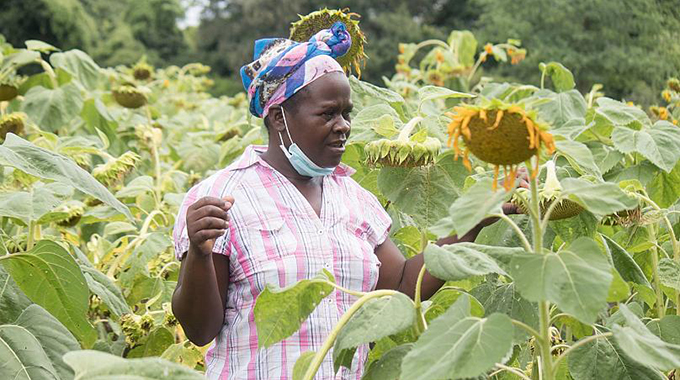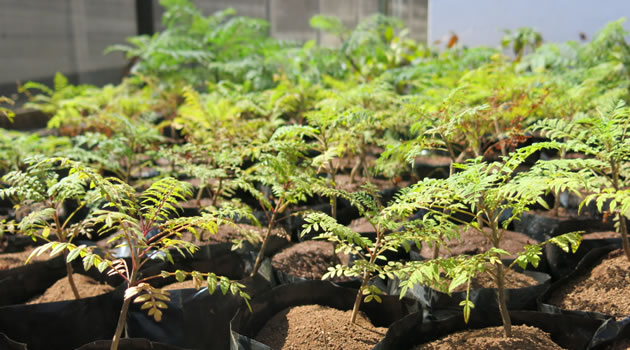Sunflower farming blooms again

Conrad Mupesa–Mash West Bureau
Sunflower production is rising rapidly, with at least 107 000 hectares now contracted for the crop this summer by major oil processor Agro Value Chain Zimgold and farmers countrywide having already received inputs from the company.
Most sunflower is grown in the small-scale sector where it was once a useful cash crop, days that have now returned with far higher volumes expected.
Ukraine and Russia were the main global suppliers of sunflower oil, and Zimbabwe’s largest sunflower oil user decided the best way of assuring supplies was to pay Zimbawbean farmers to grow what it needed.
The efforts by the AVC Zimgold, a major manufacturer of margarine and a range of cooking oils, to secure one of its major inputs from Zimbabwean farmers, not only complements Government’s drive to slash imports of oil seed, but surpasses the targets.
The Lands, Agriculture, Fisheries, Water and Rural Development Ministry had set a national target of 100 000 hectares to be put under sunflower, and AVC Zimgold surpassed that on its own with 107 000ha.
The company, which seeks to increase daily production of crude edible oil to 60 000 litres of crude oil daily at its Chegutu plant, guaranteed forex payment to over 100 000 communal farmers across the country it has contracted.
AVC Zimgold also processes soyabean and cotton seed into edible oils.
Speaking after the tour of the Chegutu plant by Lands, Agriculture, Fisheries, Water and Rural Development Ministry’s chief director Professor Obert Jiri, the company’s supply chain manager, Mr Zach Mupachike, said the initiative to contract sunflower production was aimed at addressing crude oil challenges and soaring global prices.
“The availability of crude oil is becoming more scarce from where we are getting it from,” he said.
“The Russia-Ukraine War has also impacted the availability of the raw material, hence our response by targeting to contract huge tracts of land under the crop. Sunflower is an important crop in edible oil production that we grow in summer, hence the need to increase its production.
“We started a pilot project in Chipinge and Sanyati areas where we contracted a few farmers to grow that crop and the yield output of an organic grown crop was high,” he said.
The company then approached the Government with its proposed national model, approved rapidly, with over 100 000 farmers having received the inputs, making AVC Zimgold, the only company in Southern Africa to self-sponsor over 100 000 hectares under the crop.
The symbiotic relationship existing between the company and Agritex officers countrywide, Mr Mupachike said, has made the model a success.
Agritex officers nationwide are helping both the company and the farmers with required expertise for a required increased national yield output.
Chegutu factory engineer Phanuel Moyo said the increased yield output was going to see a lot of people being employed as production rose.
The multi-seed processing factory will, besides purifying soya and sunflower oil, soon start to purify, refine and package palm oil.
In his remarks, Professor Jiri lauded the company’s efforts in ensuring that value addition of local crops is enhanced while at the same time blocking monthly import bill of over US$30 million in crude edible oil.
“The company has surpassed the Ministry’s target of 100 000 hectares to be put under sunflower and this is commendable,” he said. “The importance of this programme that AVC Zimgold is doing is such that we will not import crude oil that we use to make cooling oil and soap.”








Comments